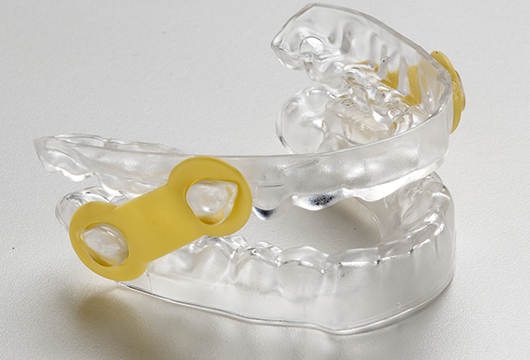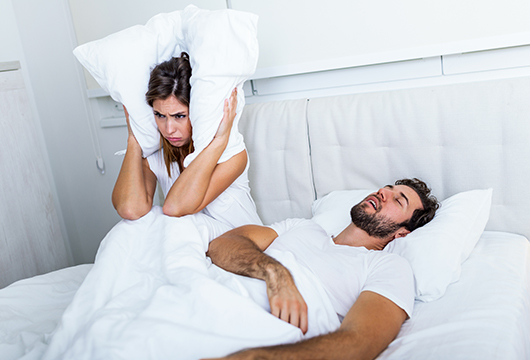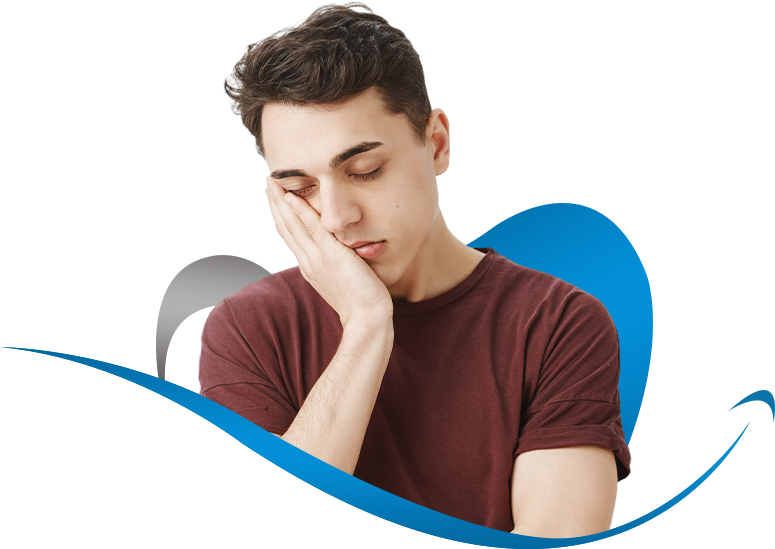Snoring and Sleep Apnea
in Balcatta


Better Night's Sleep With Our Ways to Manage Snoring and Sleep Apnea
Loud snoring can be disruptive while sleeping, especially if you have someone beside you. It can also be a sign of sleep apnea, which is a serious sleep disorder. If you’re not getting good rest at night, it can affect your energy during the day.
Not getting enough rest at night due to a sleep disorder can negatively affect your work performance and daily life.
Comfort Care Dental offers ways to manage snoring and sleep apnea. We make custom-made oral appliances that are meant to keep your airway open while you sleep, preventing pauses in breathing that may be a sign of obstructive sleep apnea, which is when your airway is blocked while you sleep.
Reasons Why You Need to Manage Snoring and Sleep Apnea


It May Increases the Risk of Health Problems
Sleep apnea can cause abrupt drops in blood oxygen levels, putting a person at risk for high blood pressure or hypertension, as well as cardiovascular diseases like irregular heartbeats, strokes, or heart attacks. The condition has been linked to a number of other health problems, including problems with liver function and diabetes.

Daytime Fatigue
Sleep apnea may cause people to have a hard time sleeping and staying awake. Repeatedly waking at night can make you feel fatigued, irritable, or drowsy during the daytime hours, making it difficult for you to function normally during the day.

Poor Sleep
Having poor sleep quality can be associated with repeated awakenings at night. It can result in various issues, including poor concentration, impaired alertness, skin problems, etc. Moreover, the snoring that keeps you up at night could also be keeping your partner from getting enough rest.

Possible Complications with Medications
Those with sleep apnea might be more likely to experience complications after major surgery because there's a concern with certain types of anaesthesia. They're prone to breathing problems, especially when sedated and lying on their backs.
Why Choose Comfort Care Dental

Modern Technology
Many advantages of using modern technology in dentistry have helped us improve our dental services. With today's advances, we can use techniques that can reduce the signs of snoring and sleep apnea.

Experienced Dental Team
Our team will assess the problem and rule out some symptoms; by doing so, our clinic can offer efficient ways to reduce the signs and symptoms of sleep apnea. We provide oral appliances to manage the signs and symptoms. Our dentists also have the skills and experience to handle patients with this condition.

Relaxed Environment
Our receptionist and dental team prioritise providing you with dental treatments under a cosy and friendly roof. It's very important that you look for a clinic that is friendly so you won't be afraid to ask questions and feel comfortable.

Flexible Payment Plan
We are the preferred provider of different health funds and offer convenient, flexible payment plans. We want you to receive the dental service you need without any hesitation about paying costly fees.
We Accept
All Payments and Healthfunds
Comfort Care Dental is a trusted dental practice in Balcatta. We offer flexible payment options and accept all major health funds.
We understand that dental services can be costly. Hence, we provide financing alternatives to make oral care more accessible for everyone. We partnered with the most popular buy-now-pay-later options like Humm and Afterpay to make quality dental care more affordable to all individuals.
We are also a preferred provider for HBF, Medibank, HCF, NIB, and CBHS.
FAQs About Snoring and Sleep Apnea
What Are the Signs of Snoring and Sleep Apnea?
Signs of Snoring
- Breathing pauses while sleeping.
- Wake up at night due to gasping.
- You observe a sore throat.
- If you have someone sleeping near you.
- Your snoring is making your partner’s sleep difficult.
- Restless sleep results in excessive daytime sleepiness.
- You have a hard time concentrating.
- High blood pressure.
- Poor attention span, behavioural issues, or poor academic performance in children
Signs of Sleep Apnea
There are two types of sleep apnea called obstructive and central sleep apnea, and sometimes it can be hard to tell the difference between them, but there are some key differences. The following are the most common signs of both types include:
- Loud snoring when sleeping.
- People who have sleep apnea may experience episodes of stopping breathing while sleeping and are often not aware of it. If you sleep with someone, they’re more likely to report this symptom.
- Gasping for air while sleeping.
- Frequent waking up with a dry mouth.
- Hypersomnia, or excessive daytime sleepiness.
- Insomnia, or difficulty sleeping.
- You often feel irritable.
- It’s challenging to pay attention when you’re awake.
Are Snoring and Sleep Apnea Dangerous?
Snoring can be associated with obstructive sleep apnea, but not all cases have this symptom. Both are conditions that can cause episodes of stopping breathing during sleep. The lack of oxygen can lead to high blood pressure and an increased risk for heart attack or stroke, other cardiovascular problems, diabetes, and symptoms like mental fatigue, irritability, and a dramatic decrease in the quality of sleep. Such issues can be concerning and lead to stress in the human body.
It is recommended that you consult your doctor if you experience the common signs and symptoms of snoring and sleep apnea. Avoiding proper diagnosis may delay treatment and may worsen the condition.
How Will My Dentist Manage Snoring and Sleep Apnea?
Some dental professionals have attended dental sleep medicine, which focuses on managing sleep apnea with the help of oral appliance therapy (OSA). Dentists and doctors may work together to find the best treatment for each person, such as oral appliance therapy for sleep apnea.
An oral appliance is a special device that you wear in your mouth when sleeping. It fits like an orthodontic retainer, except it’s designed specifically for people who suffer from sleep apnea. Appliances like this one can help keep the jaw in a forwards position, which prevents the muscles to obstruct airway passage.
What Usually Causes Snoring and Sleep Apnea?
Causes of Sleep Apnea
The causes of sleep apnea depend on its type.
- Obstructive Sleep Apnea
The muscles that support your soft palate (roof of your mouth), uvula, or the triangular tissue hanging from the soft palate, the tonsils, tongue, and the side walls of your throat are relaxed when you have obstructive sleep apnea and are sleeping at night.
This condition is triggered when the muscles relax due to the airway narrowing as you breathe in. This means you can’t get enough air, and the oxygen level in your blood drops. This occurrence is sensed by your brain and will react by rousing you from sleep, which encourages your airway to reopen. This awakening is typically so abrupt that you may not remember it.
Snorting, choking, and gasping are all common effects of apnea. You might unconsciously repeat this pattern five to thirty times or more each hour while you sleep. This can be concerning as you may not be able to reach deep and restful phases of sleep. - Central Sleep Apnea
It is an uncommon type of sleep apnea that occurs when your brain fails to send signals needed for proper breathing. You may wake up with shortness of breath or difficulty getting enough air, which can make it hard to stay asleep at night.
Causes of Snoring
The flow of air through your mouth and nose is blocked, which causes you to snore. Several things can interfere with this natural process, including:
- Blocked nasal airways. Same with one of the common causes of sleep apnea, snoring occurs every time the nasal airways are blocked. In some cases, people may snore only to respond to sinus infections, allergies, or problems with the nose.
- Lack of muscle tone in the throat and tongue. When the muscles in your tongue and throat are too relaxed, they can allow themselves to become soft and collapse into the airways, becoming an obstruction for air to flow.
- Bulky throat tissue. Some people may have larger tonsils that cause them to snore when sleeping. This issue may be more common among the overweight.
- The long soft palate, or uvula, can narrow the opening from your nose to the throat. When you breathe, it vibrates and bumps against one another, causing a blockage in the air passage and other issues with breathing.
- There are times when the sleeping position can make someone snore, such as sleeping on your back.
- Lack of sleep can make your throat relax too much and close the airways.
